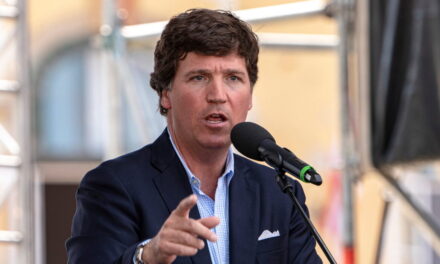Kiev achieved its goal with the invasion of Kursk, the only question is at what cost.
A Turkish analyst firmly asserts that the ceasefire or peace negotiations between the Russians and the Ukrainians may begin this December. If this is true, it partially explains the otherwise senseless Ukrainian invasion of Kursk from a military point of view. Another issue is that the action seems rushed in this case. But what other reasons could there have been for the "pocket offensive", why did the USA and the EU react differently, and how similar is this current one to the "big summer counteroffensive" in 2023?
These questions were answered by Bálint Somkuti, a researcher at the MCC Geopolitics Workshop.
Citing military analysts, the New York Times wrote that the "easy successes" of the Ukrainian army in the border villages of the Kursk region have ended, their advance has been halted. According to the article, Zelensky's main mistake was that, contrary to his expectations, Moscow did not withdraw troops from the Eastern Front, so the Russian offensive does not stop near Chasov Yar, Toreck, and Pokrovsk. When asked whether this could really have been the driving force of the Ukrainians and whether they really failed, Somkuti answered: it must be assumed that the Ukrainian political and military leadership is forced to fight a multi-front war:
– Here I am not primarily thinking of the military fronts, but of the struggle for the attention of the public and especially the American public.
When the tension in the Middle East is high, when there is an Olympics, when there are other things happening in the world besides the Russian-Ukrainian war, which is literally vital for the Ukrainian leadership, then something must be done. Well, in this case, the situation is that if the combined reserves are deployed to slow down the Russian advance, it has no news value whatsoever. So something had to be flashed, and after almost all the major Russian warships were caught in the Black Sea or forced away from their shores, from then on it is difficult to carry out an action that reaches the stimulus threshold. And I believe that, given the aforementioned circumstances, this offensive was not primarily about achieving certain military goals.
His goal was to capture world public opinion, which was perfectly achieved, Somkuti pointed out.
According to the sources of the British Times, the military leadership strongly opposed this action, as it was later heard that the general staff also opposed the summer offensive planned for the spring of 2023, because the appropriate forces were not available, but politics overrode everything. , and Zelensky forced the attack. The analyst sees this situation as follows:
- Last year's story ended with Zaluzhnyi having to leave his post. So there is a good chance that this parallel holds its place. But we must add that in the modern era, especially in the XIX. from the second half of the 20th century, the political leadership decides everywhere in military matters, and the task of the soldiers and experts is to carry out the instructions of the political leadership. Of course, there are limits to this, as you cannot intervene in a military operation indefinitely without risking rebellion, Somkuti pointed out, adding:
when the political leadership says that some military task must be carried out, it must be carried out by the military leadership after a while, because this is the natural order of things.
And from here on, all such polemics about "what could have been" and why it happened like that are completely unnecessary.
"Obviously, the soldiers see that in the '23 attack and here there were not enough equipment and soldiers to be able to fight with the hope of success. But this is also a situation where there is little other choice than to say "order, I got it" and manage with what you have. Returning to the parallels,
in last year's counterattack, the offensive was launched towards the Crimean peninsula by chance, since the most important thing for the Western sponsors, especially the Americans, is the Crimean peninsula and the elimination of the Russian presence there. There may be something in the background here too, but as I have already said, the main goal was probably to attract the attention of the media and public opinion, which was achieved, the only question is at what price," concluded the analyst.
There were different reactions from the West to the Ukrainian attack: the EU stood up, applauded, and said hooray practically without thinking, regardless of the fact that they had previously opposed attacks launched against targets behind Russia's internationally recognized borders. The Americans, on the other hand, made a much more nuanced statement about the invasion of Kursk: they kept talking about the fact that, of course, Ukraine has the right to defend itself, but this action was not coordinated with them in any way, they actually had nothing to do with it.
When asked if this means that American foreign policy is more cunning in this respect, and has left a loophole open so that if the Ukrainians fail, they can throw up their hands and say they had nothing to do with it. was not, Somkuti replied:
"I wouldn't call that cunning, but sanity." Quite simply, the leaders of the European Union have lost their sense of reality, they react positively to anything that goes against Russia. The Americans, on the other hand, have much more to lose, because if something goes wrong, due to the lack of military capabilities, it will not be the European Union that will primarily be in the crosshairs of Russian nuclear missiles, but them. And the United States of America, in contrast to the British, who really wanted to put everything on one page, is fighting this war much more carefully anyway, and it was evident in many cases that the American political and military leadership is perfectly aware that there is a point beyond which the string cannot be stretched.
Obviously, they are trying to go to the limit, to give the Ukrainians as much success, as much power, as many opportunities as possible, but not at the price of a global war, God forbid, a nuclear war. This is the point that I think the European leadership is unable to perceive.
For them, this is an ideological struggle, an existential struggle in which Russia can only lose, if the world is destroyed in the meantime, that's okay, because at least Russia didn't win. In contrast, Americans also think about what will happen tomorrow. And the European decision-makers are not interested in this - highlighted Bálint Somkuti.
According to Turkish analyst Engin Özer, peace has not been so close since the spring of 2022, but at least a cease-fire agreement between the warring parties, and he also mentioned a very specific date, said that the negotiations could start as early as this December. This is consistent with the Ukrainian statements that they wanted to improve their negotiating positions with the Kursk pocket offensive.
According to Bálint Somkuti, the Turkish analyst may have sources that we do not have, for example, he may be in contact with the group that almost brought down the Istanbul agreement in March '22.
– If the groping exercise has already started, you may know something about it from a Turkish diplomatic or government source. This is one explanation. The other explanation is that this is merely his own theory, but there is logic in it: in December, there is no longer any danger that the end of the war or the freezing of the conflict will interfere with the American presidential elections. So, from then on, the already tired European and American decision-makers can encourage Ukraine to try to resolve or end the war through negotiation and not by armed force. By the way, I used to say that war consists of trends. And you can clearly see the trend that Western support for Ukraine is decreasing, and sooner or later it will result in its inability to continue the war. Recently, more and more people are saying that this moment, the end of the war, will come this year, Somkuti stated.













